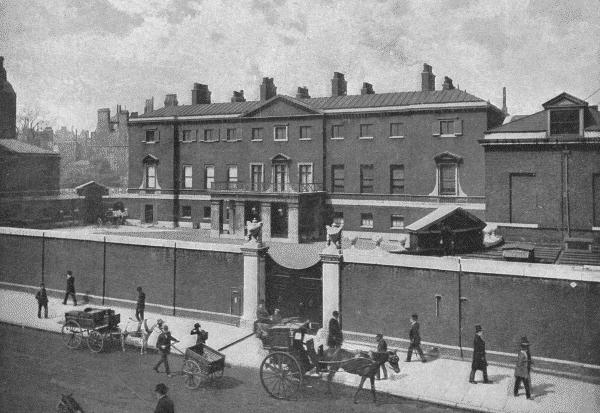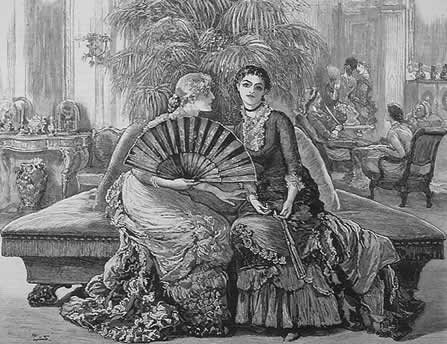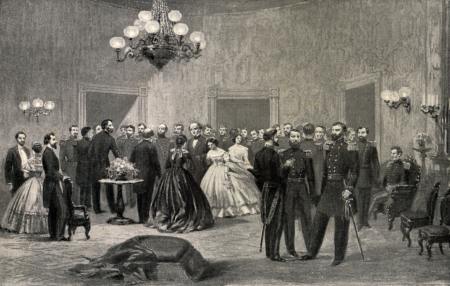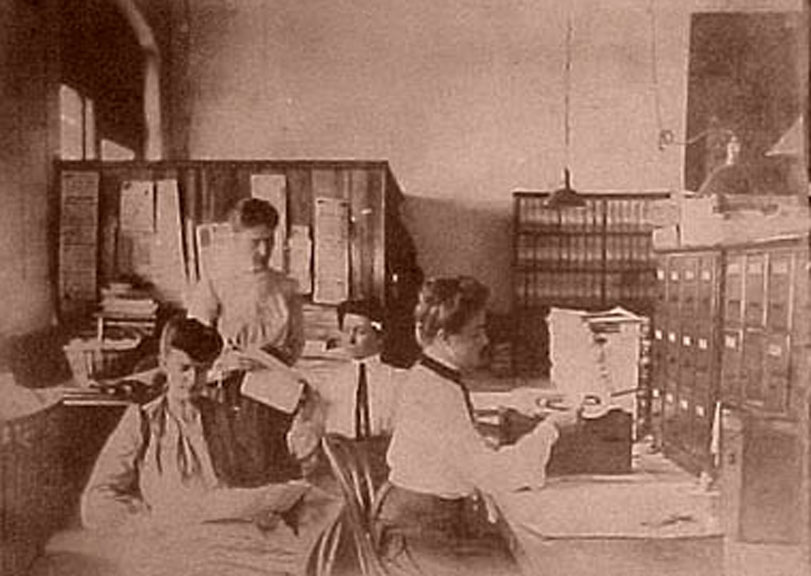As per Violet Asquith’s (dau. of H. H. Asquith, PM 1908-16; m. Sir Maurice Bonham Carter in 1915) Diaries and Letters, 1904-1914 and Lady Cynthia Asquith’s (nee Charteris; dau. of 11th Earl and Countess of Wemyss [members of The Souls]; m. Herbert “Beb” Asquith, Violet’s older brother in 1910) Diaries, 1915-1918:
Boil: To put off, or shorten, a meeting with one friend to spend time with another
Bunch: Give spontaneously and unexpectedly
Buxton: Letters, letter-writing, and the post; after Samuel Buxton, postmaster general, 1905-1910
Collins: A “thank you” letter for hospitality received, named after Mr. Collins of Pride and Prejudice who wrote an unquoted masterpiece in the line. They were a dreaded task for the tyro in country-house visiting and there was the lingering dread that an unscrupulous hostess might read it aloud at breakfast to entertain her remaining guests the day after one’s departure.
Dentist: A prearranged tete-a-tete with flirtatious overtones, so that the intervention of an unwanted third party playing gooseberry was known as “dentist-wrecking”; it could also have the more expected meaning of a private interview accompanied by plain speaking.
Dewdrop: A compliment retailed to you by some third party. The opposite (an insult retailed through a third party) was called a spike.
Doe: A woman
Drum: An additional party joining the original dinner guests after the meal, when the affair became rather noisier.
Floater: An embarrassing situation, or the cause of one
Gnome: An elderly admirer to be handled kindly.
Haircombing: Talking session with one or more women-friends carried on in each other’s rooms after bedtime, often till early in the morning.
Heygate: Conventional (of manners, attitudes, etc); the word carried negative connotation, and was often applied to individuals (“a heygate”) in a way similar to the use of “square” by a later generation.
Lasher: Proposal of marriage.
Navigate: To court; to approach with romantic intent.
Parti: A particularly eligible bachelor, typically a young aristocrat destined to inherit.
Phantom: A late-stayer at a ball.
Squirrel: Alert and also very elusive–synonymous with Americanism “bright-eyed and bushy-tailed”).





It is interesting that we don’t know those expressions, on the whole, except perhaps for reading novels written at the time. It goes to show that colloquialisms are more specific to a particular place and to a particular era than we might have thought.
Are there any Edwardian colloquialisms that HAVE gone into the language and still have an impact now?
Perhaps not novels, but diaries and letters–which is where I have obviously culled these terms–since historical slang does seem to be class-based and/or inherent to a particular set (The Lyttleton-Gladstone-Glynne family vocab “Glynnese” comes to mind). This leads me to believe that slang with staying power so to speak trickles from the bottom up rather than from the top down. Even in the Edwardian era, most common slang derived from newspapers, or sports, or surprisingly enough, the languages of colonized peoples (i.e. Indian Raj). The only contemporary book I’ve seen that used aristocratic Edwardian slang was Vita Sackville-West’s The Edwardians; not even Elinor Glyn’s high society romps use any form of insider slang, whereas Silver Fork Novels of the 1840s and Georgette Heyer’s second generation of SFNs (slightly satirical romantic novels set amongst high society of the Regency era) are peppered liberally with “cant.”
Perhaps the lack of slang outside of that genre points to the increase in literacy of the lower classes, the rapid expansion of the middle class, and from that, the growth of literature (books, newspapers, magazines, etc) aimed at particular social classes? After all, before the costs of printing decreased dramatically, paper and books were quite dear, and a lack of compulsory education meant most printed works were aimed towards the well-to-do, and before the 1860s, high society was a closed circle, so books purporting to give anxious members of the new middle class a glimpse into the “ton” were their only means of knowing how to behave in their new income and social status.
You’re such a squirrel. 😉
Lol, thank you for that dewdrop!